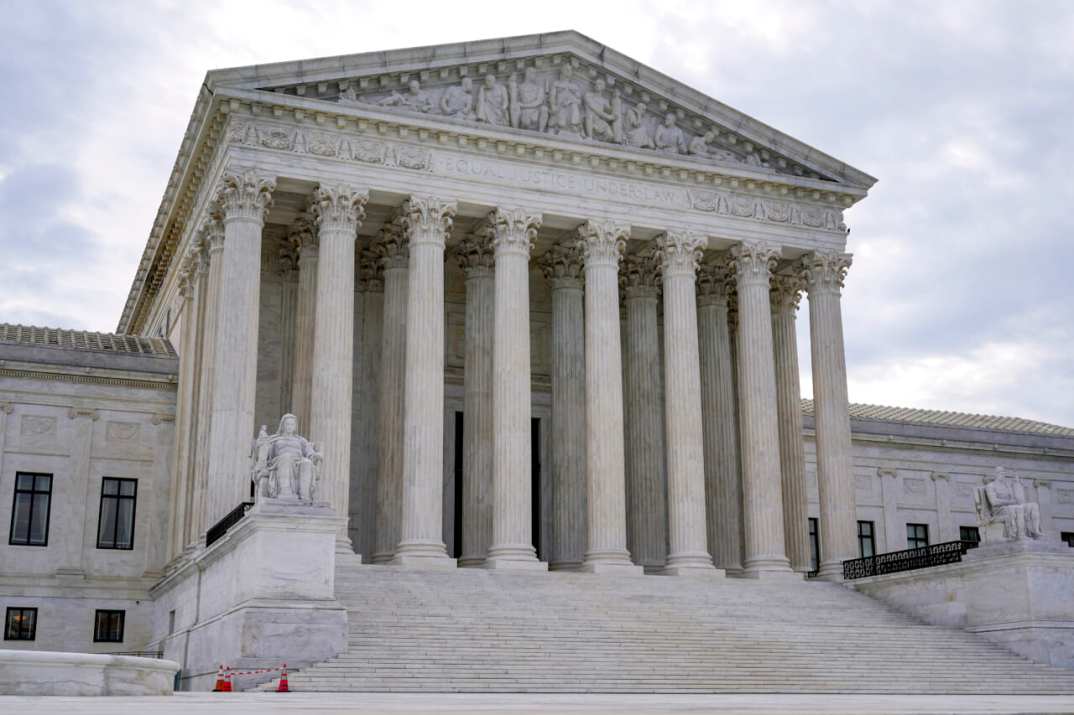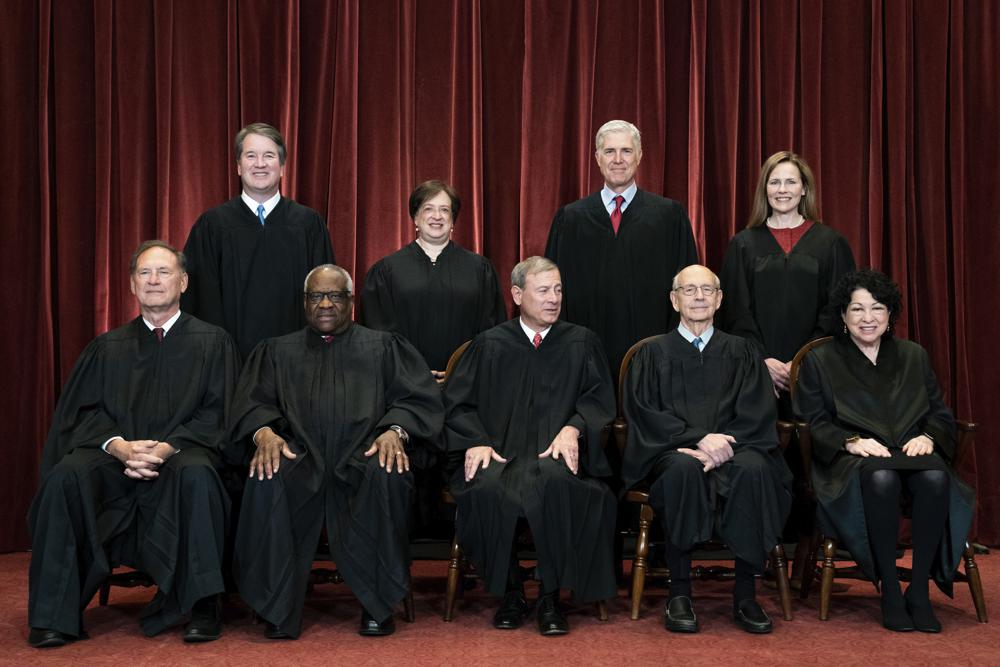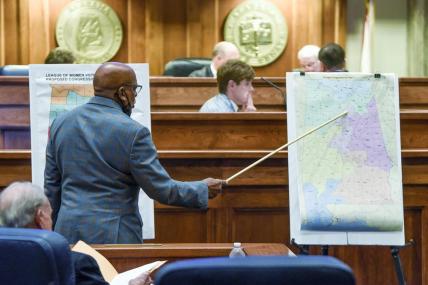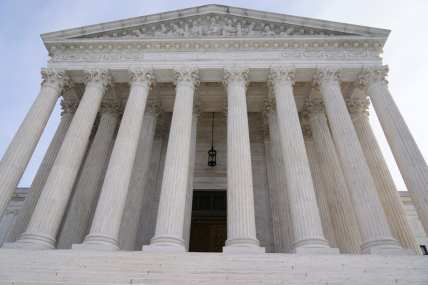The first Black woman appointed to the Supreme Court will be extraordinary, but she can’t save the Supreme Court
OPINION: The presence of a Black female justice cannot fix the structural issues facing the court. Only expanding the Supreme Court can do that.

Soon, President Joe Biden will nominate the first Black female Supreme Court justice—a moment that is long overdue. We believe in the power of representation in the highest ranks of government; we celebrate this, and we have every expectation that Biden will nominate an extraordinary lawyer committed to equal justice under the law.
But, this dynamic woman alone will not save the Supreme Court. The six-three Republican supermajority that currently dominates the court is the result of decades-long work by the right-wing legal movement whose goal has been to install partisans dedicated to helping Republicans score favorable political outcomes, not to deliver justice.
Representation is important, but it is not enough when the institution that the first Black female justice is entering is broken. If we are to see the fullness of this historic moment, we must fight for a Supreme Court that works for us all. The presence of a Black female justice cannot fix the structural issues facing our court. Only Supreme Court expansion can do that.
We know that after a nominee is announced, there will be a lot of discussion of her extraordinary qualifications, abilities and her superb legal mind. As is often the case when Black women shatter glass ceilings, people may unfairly and unrealistically believe that this forthcoming justice will have the ability to singlehandedly rebalance and transform this institution. Some may be tempted to put their hopes in her ability to somehow temper the direction of this court. But the Republican-appointed justices are not warping the direction of the law because they have not heard brilliant enough arguments against it; they are doing it because they can. It has been their intention to play the long game for the past several decades to ultimately reach the crisis moment that we are currently in—the moment to seize opportunities to overturn Roe v. Wade, completely eviscerate the Voting Rights Act, end affirmative action and trample on so many other civil rights issues.

We should celebrate what it means for Black women and girls to finally see themselves on the highest court in the land. But, if we then turn our attention away from the broken institution she will work within, it would mirror the way we too often treat Black women in America: celebrating diversity without reforming the institutions and structures so that they actually value the input and work of Black women. Putting a Black woman in the Supreme Court’s private conferences for the first time in history will mark an important step forward, but unless we send her four more colleagues who share her commitment to equal justice under the law, we won’t be doing right by her or our democracy.
Expanding the Supreme Court to restore balance to the institution is an idea that has taken off among progressives recently. This time last year, there wasn’t even a bill in Congress to do it. Now the bill, the Judiciary Act of 2021, which would add four seats to the court, has the support of more than 50 members of the House and Senate. Adding seats is constitutional, and it’s been done multiple times throughout our country’s history. To achieve a Supreme Court that works for the American people, we need everyone involved in the fight to get it passed.
While Biden’s nominee will undoubtedly be incredibly talented, she will not be magic, and anyone who watched Brett Kavanaugh’s confirmation hearing should know that convincing him to do anything else but pursue the Republican Party’s policy agenda on the court would require an act of divine intervention. Celebrating this Black woman’s accomplishments so much that we expect her to pull off the impossible isn’t empowering her; it’s setting her up to fail.
Counting on Biden’s nominee to fix the court and turning our attention elsewhere isn’t just a disservice to her—it’s a disservice to everyone whose rights are under attack. Consider the recent decision by five Republican-appointed justices to put into effect an Alabama congressional map that a lower court blocked because it dilutes the power of Black voters. A Black female justice may have written a brilliant dissent outlining everything wrong with the decision. However, Black Alabamians would still face a congressional map that denies them the representation in Congress they deserve.
It’s the same story with people who need an abortion in Texas, people experiencing racist voter suppression across the country or people who need Medicaid access in red states—all at risk because of bad Supreme Court decisions written by the conservative justices that are rooted in a tenuous and disingenuous application of the law and the Constitution. If our plan of action does not protect the rights of those people, then it is not enough.
We want to be clear that there is a lot worth celebrating about the first-ever Black female justice joining the court. She will serve as an important role model. As Justice Sonia Sotomayor has shown in recent years, powerful calls for justice from within can help show Americans what is really going on behind those marble columns. It is precisely because we know how important this confirmation will be that we want to warn against putting the weight of fixing an institution Republicans spent decades shaping entirely on her shoulders. In a democracy, no one person, no matter how talented, can save us all. Support for the Judiciary Act is growing, and a grassroots movement to pressure more elected officials to support it is necessary to achieve a truly just Supreme Court.
Tamara Brummer is the senior adviser and director of national outreach and engagement at Demand Justice.
Meagan Hatcher-Mays is the director of democracy policy at Indivisible.
Tristin Brown is policy & program director at People’s Parity Project.
TheGrio is now on your TV via Apple TV, Amazon Fire, Roku, and Android TV. Please download theGrio mobile apps today!


